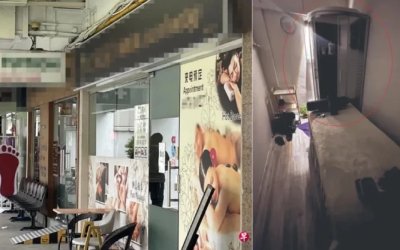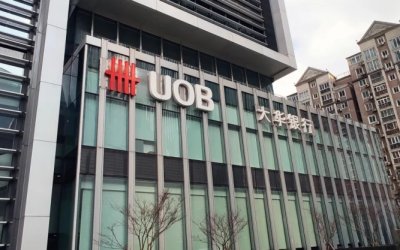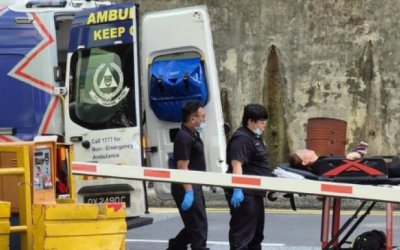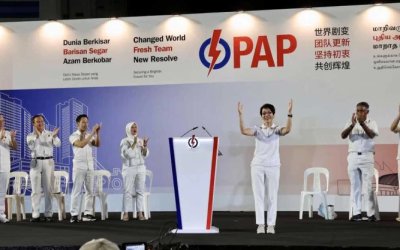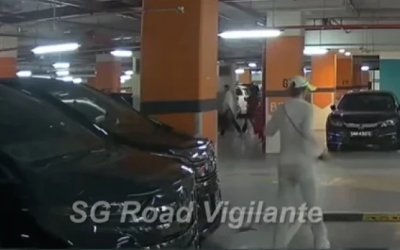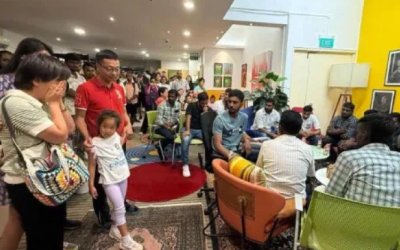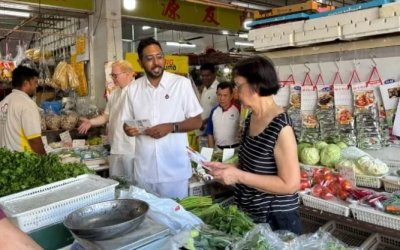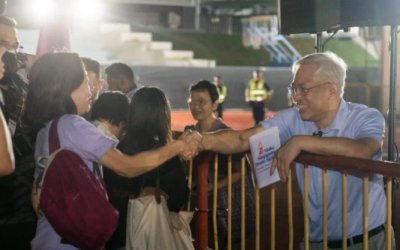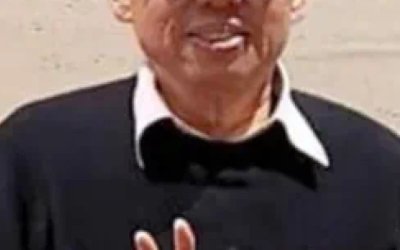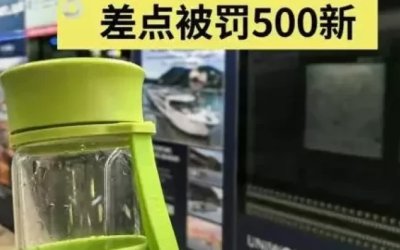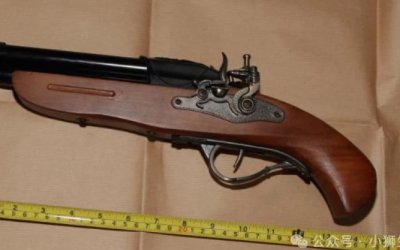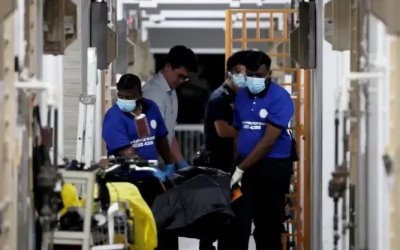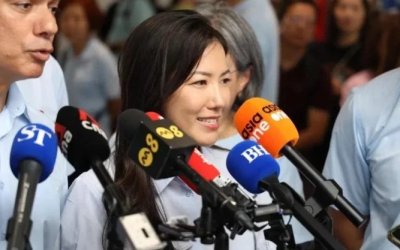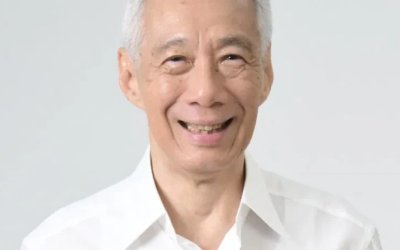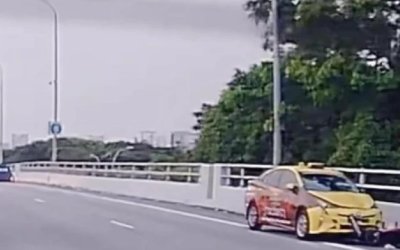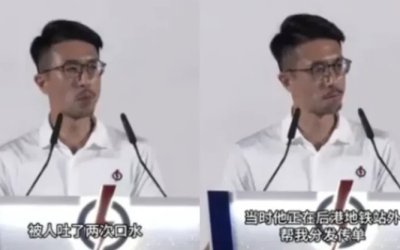We certainly do not condone businesses deliberately using their association with Singapore to circumvent or violate the export controls of other countries. At the operational level, Singapore Customs works closely with its foreign counterparts, including those from the US to address their concerns and to facilitate their investigations where appropriate and to the extent our law permits.
It is important to emphasise that this open, inclusive and transparent regulatory regime applies to all our trading partners.
Some Members also had questions about the economic impact on Singapore arising from US controls on advanced semi-conductor chips. There is limited impact, in terms of our ability to manufacture and export chips. The US' current technology controls are aimed at a narrow subset of advanced semi-conductor chips, whereas Singapore's semi-conductor industry focuses on producing mature node chips which are used globally in appliances, automotives and industrial equipment.
However, in terms of access to advanced artificial intelligence (AI) compute – for example Nvidia H100 Graphics Processing Units (GPUs), the previous US administration had introduced an AI Diffusion Rule in January 2025 aimed at managing access to H100 or equivalent GPUs on a country-level basis. Singapore, like around 150 countries, has been classified as Tier Two. The details of the US AI Diffusion Rule have not yet been finalised by the current US administration, and the US has not communicated any specific requirements as prerequisites for changes to countries' tiering classifications.
Our objective is to ensure adequate access to AI compute by both local and international companies with operations in Singapore. We will ensure that US-headquartered cloud hyperscalers can continue to operate in Singapore as Universal Verified End Users and also support local companies that wish to apply to be National Verified End Users with access to AI compute.
In closing, I wish to assure Members that we will continue to work with companies based in Singapore to facilitate their access to advanced semi-conductor chips and technologies from all the major source countries. We will also continue to engage the US administration to address their concerns.
Mr Speaker: Mr Yip Hon Weng.
Mr Yip Hon Weng (Yio Chu Kang): Thank you, Mr Speaker. I thank the Minister for his response. I declare that I work in a global investment firm based in Singapore. I am glad that the Ministry has emphasised compliance with international trade rules, and that Singapore takes our obligations seriously.
Could the Minister elaborate on the safeguards in place, to prevent companies from using Singapore as a conduit to bypass US export restrictions, especially in light of heightened US-China trade tensions? And how does the Ministry balance these safeguards with ensuring that we remain an attractable destination for businesses?
Dr Tan See Leng: I thank Mr Yip for his supplementary question. Singapore has a robust export control regime and this is underpinned by a comprehensive strategic goods control legislation. The Strategic Goods (Control) Act 2002 and its subsidiary legislation governs and regulates the transfer and brokering of strategic goods and technology.
Singapore's list of control goods and technologies is aligned with four multilateral export control regimes, namely the Wassenaar Arrangement, the Australia Group, the Missile Technology Control Regime and the Nuclear Suppliers Group. And as I have alluded to earlier, the enforcement action is undertaken by Singapore Customs.
I wanted to give a bit more granularity in terms of how we manage the exports. Potential contraventions can include export, transshipment, transit of strategic goods without the requisite permits or providing false or misleading documents or information, incorrect declarations and brokering of strategic goods without a permit or being registered – and with that, criminal penalties can then be enforced.
How do we balance working with foreign counterparts? As I have earlier on mentioned in my reply, while we may currently not have legal obligations to enforce unilateral export controls of other countries, which may vary from time to time, companies that are operating in Singapore are expected to take into account such regulations if these apply to their international business activities.
The Ministry of Foreign Affairs (MFA) and Singapore Customs also have existing arrangements with some foreign counterparts, such as those in the US, to facilitate the investigation of companies of interest. From time to time, when we do get information of allegations and if we are aware of breaches, we will undertake to conduct these investigations ourselves.
The approach that we take is systematic and thorough, and we want to continue to emphasise that we have an open, inclusive and transparent regulatory regime and it applies to all of our partners today. I hope that addresses Mr Yip's supplementary question.
Mr Speaker: Ms Joan Pereira.
Ms Joan Pereira (Tanjong Pagar): Thank you, Mr Speaker. I have one supplementary question for the Minister. May I know if there are plans to issue any industry guidelines to support firms operating in Singapore to comply with export controls and international sanctions?
Dr Tan See Leng: I thank Ms Joan Pereira for her supplementary question. As I have shared earlier on, countries may have export controls from time to time, unilaterally. Where we have been very clear and transparent to companies operating within Singapore is that they are expected to abide by the countries' export controls, and not use Singapore as a country to bypass or circumvent these export controls.
To this end, as the hon Member has highlighted, it would not be possible to cover every potential, probable or future export controls that countries may unilaterally impose. But those principles that have guided us through to build us up to where we are a reputable business hub, these principles will continue to be consistent and we will hold true to these principles. From time to time, when these unilateral export controls come to our attention, we will work with the relevant countries to gain clarity, to engage them, as we are actively engaging with the US, our very important partner, to see how we can better manage and better educate the businesses that are based here to make sure that they are able to comply. I hope that gives the Member the reassurance.
